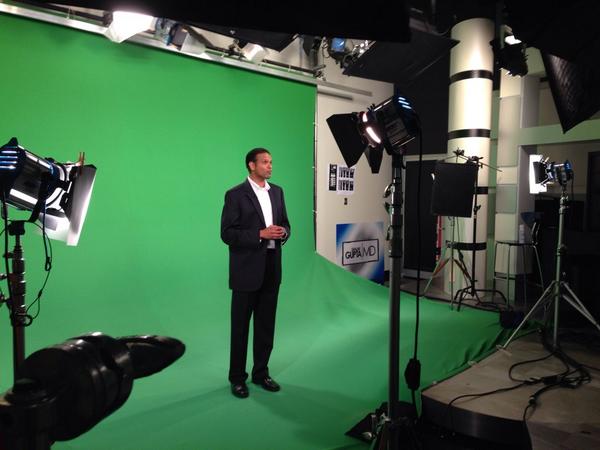The Future of Startup Fundraising
Why my two minute segment for CNN International on the future of startup fundraising was geared towards the general public and not entrepreneurs.
A little over four weeks ago I went to CNN to record a two minute segment about my thoughts on the current and future state of fundraising for startups and innovation. The talk centers around the relentless decrease in cost thanks to cloud computing and the ability to quickly and inexpensively create hardware prototypes thanks to 3D printing. Coupling this with the ability to leverage crowdfunding, the rate of innovation has opened for entrepreneurs.
While writing the script for this talk I realized that to anyone in the startup community, this is a well known story and my talk is pretty obvious. This talk wasn't meant to inform or educate entrepreneurs. This talk centered around informing the broader public - the majority of people who do not understand what startups do, how we are doing more now than in the past, and how this system of innovation is functioning and thriving. The fact is that the majority of people in the world don't live and breath our reality.
Why It Matters
Too often innovation that is occurring within the startup community is staying trapped within our community. The earliest reference I remember to this phenomenon is Geoffrey Moore's book Crossing the Chasm. Geoffrey Moore talks about how startups need to "cross the chasm" from early adopters to mass market acceptance. This is absolutely an issue for startups but I also believe it's an issue for our community as a whole.
To this day I still hear about people who think of Twitter as a way to talk about what you're eating for lunch. These people ignore (or are ignorant about) the impact that communication tools like this have played in coordinating revolutions or disseminating breaking news.
As a community we need to do more to engage with the general public to talk about what we are doing and why we are doing it. This can only help us as a community. From just a success standpoint, the general public is a much larger market for entrepreneurs to sell to instead of our confined entrepreneurial community. Great resources like TechCrunch, Pando Daily, Re/Code, and Product Hunt exist to inform us about our community but how many people who are not "us" read these outlets? In a nutshell, this is the audience I am hoping to reach with this two minute talk about what is happening on the cost and funding side for startups. If we can encourage more individuals to be involved in supporting startups, the future will indeed be brighter for all of us.
But I can't do this alone - I need your help. I need other entrepreneurs to carry the banner and talk about our community as a whole. If we can band together and do that as a group, we'll be stronger in the end for ourselves and the generation of entrepreneurs coming behind us.
How You Can Carry the Banner
The prime thing we need to do is to deliver the message of startups and innovation to the general public. Of course we could embark on a campaign of one-on-one education but that really isn't going to deliver the results we need. We need entrepreneurs and technologists that understand what is happening within our community and can effectively communicate that to non-startup-y people en masse. The second requirement is almost more important than the first. If we can't explain it, it doesn't matter that it's happening.
Mass media is clearly the best approach to get the word out on what we're doing. As such, journalists are the people we need to engage with to tell our story. I encourage you to sign up for Help A Reporter Out and spend a few minutes each day reading through the requests from journalists for sources to provide materials for their stories. You may find something where you can talk about your startup and if so, that's great. But if you find opportunities to talk about the community as a whole, then that's even better.
The other place where I believe we need to do more work is in cultivating enthusiasm with students who are still in high school and college. Most of these students have watched their parent(s) work 8am to 5pm, Monday to Friday for years on end with the hope of having a hefty retirement account one day. I'm not saying there is anything wrong with this but if we can spark a few entrepreneurs to chase the startup path earlier, rather than later, the return on our small investment will be incredible for society. In the next few weeks I'm going to talk about entrepreneurship as a career at a high school - the Gwinnett School of Mathematics, Science, and Technology - and at Georgia Tech. When these kids launch more and more startups each year, the mass market will have no other choice than to sit up and take notice.
Watch The Video
Without further ado, take a look at the final product from CNN. I was shot on a full size green screen (a first for me) and so I didn't know what graphics they were going to use until I watched the video.

Thanks
Many thanks to Elisa Berkowitz and Adeline Chen for asking me to do this and deftly managing my inexperience at reading a teleprompter. It was certainly my honor and pleasure.